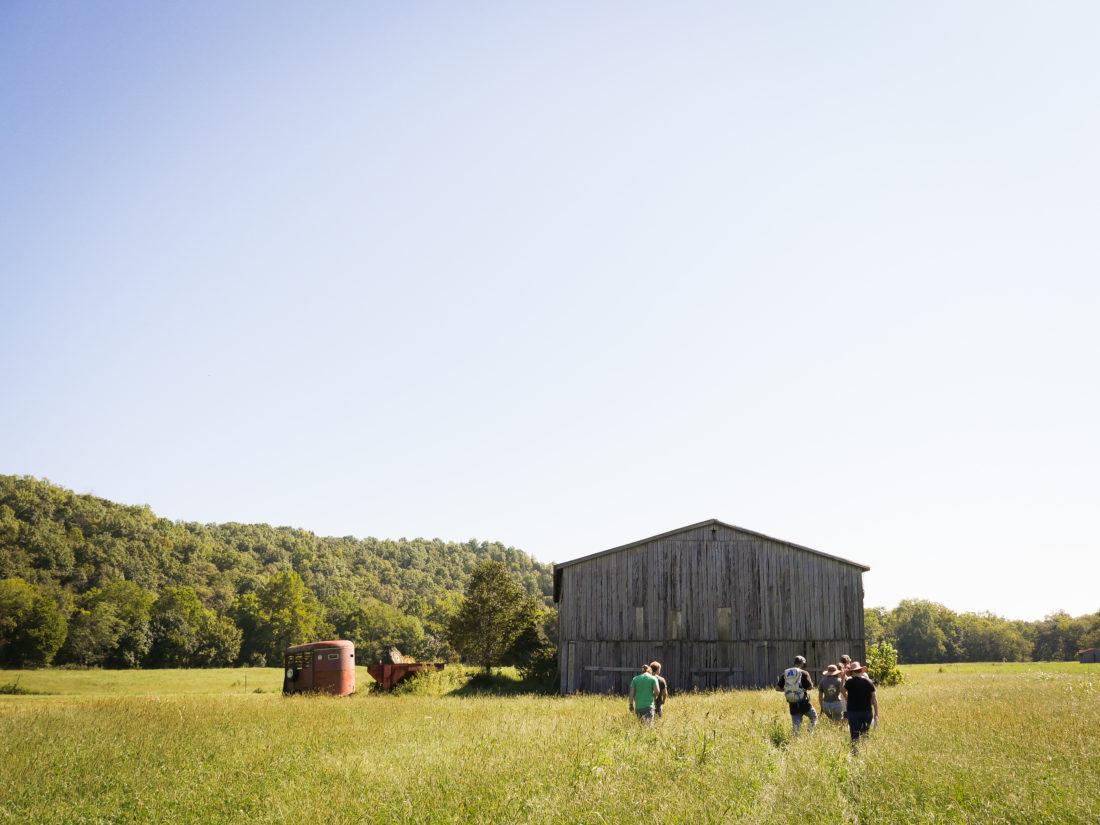When Mary Berry founded the Berry Center in New Castle, Kentucky, in 2011, she had one overarching mission in mind for the nonprofit: improve the culture of agriculture. For Berry, a farmer with thirty years of experience and the daughter of the writer, conservationist, and longtime farmer Wendell Berry, the center was a means to confront issues facing small farms and continue her father’s work in advocating for more sustainable practices and healthy rural communities. She also recognized that more needed to be done to help younger generations interested in a life connected to the land. “We’ve got some young people who really want to farm,” she says. “They want an agrarian life. How are we going to help them? My answer to that has been the Berry Center.”
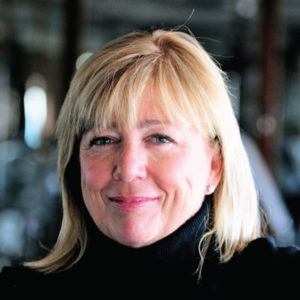
Photo: Courtesy of the Berry Center
Mary Berry.
As part of that work, in 2012 the Berry Center developed a two-year degree program with St. Catharine College in Springfield, Kentucky, that put ecology-based, hands-on farming and forestry in the middle of a liberal arts curriculum. Students took classes in soil stewardship and agricultural science alongside their other coursework, and when they weren’t in the classroom, they were out on a fifteen-acre research farm, practicing what they learned. Called the Wendell Berry Farming Program, it was forced to go on hiatus when St. Catharine closed in 2016, but Berry was encouraged by its results: A number of graduates planned to return to their hometowns and start their own farms there.
Now, the Berry Center has revived the program with a new educational partner, Sterling College, based in Craftsbury Common, Vermont. The school has a legacy of focusing on environmental stewardship, and though the college is based in the northeast, the Wendell Berry Farming Program will be located in the Berrys’ own Henry County, Kentucky, and a number of Sterling staff will now call this place home.
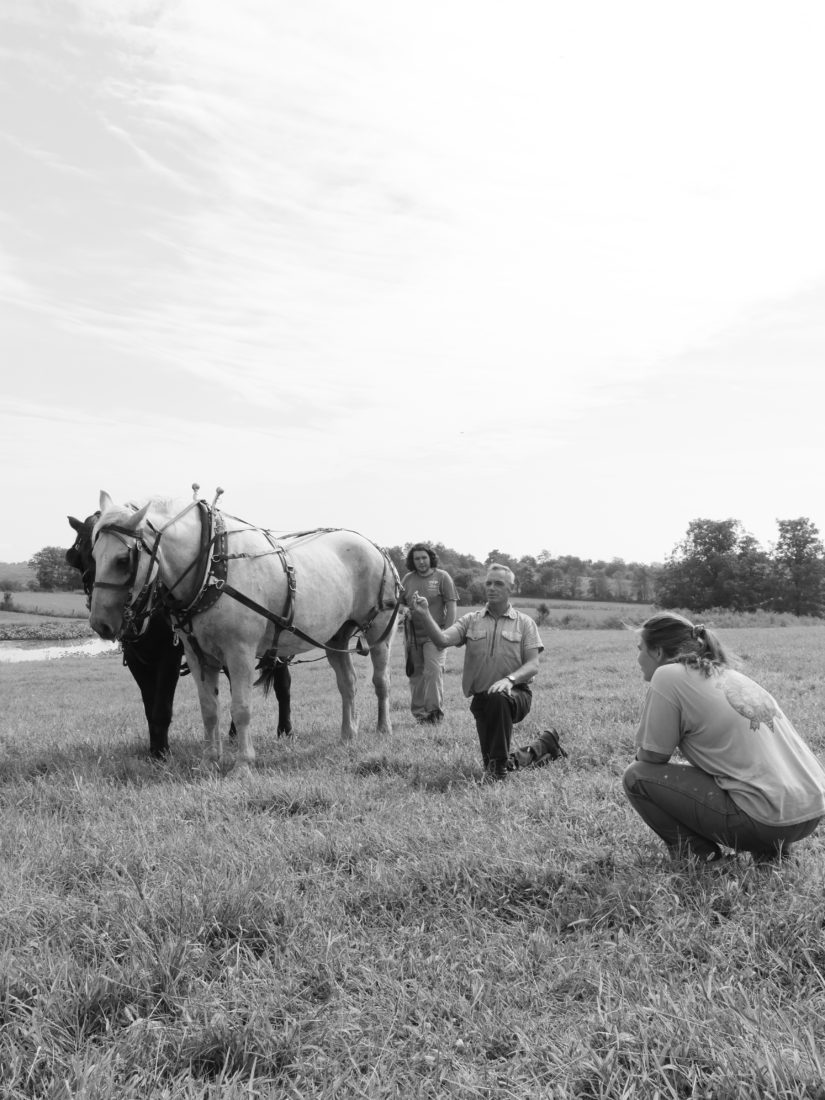
Photo: Ben Aguilar
Sterling professor Rick Thomas instructs students Brennan James and Grace Desrochers on the finer points of driving Wendell Berry’s horses Felix (black) and Jed (white) near Lacie, Kentucky.
Sterling students have already done two short sessions in Henry County, in August 2018 and January 2019. They worked side-by-side with cattle farmers, learned from foresters, and spent time gaining an appreciation for the knobs and barrens that dot the landscape. When the new program kicks off in the fall, it will once again be a two-year capstone experience designed for students in their junior and senior years of college. Interested students don’t need to have previously attended Sterling to be considered and can transfer into the program, earning a Bachelor of Arts in Sustainable Agriculture upon completion.
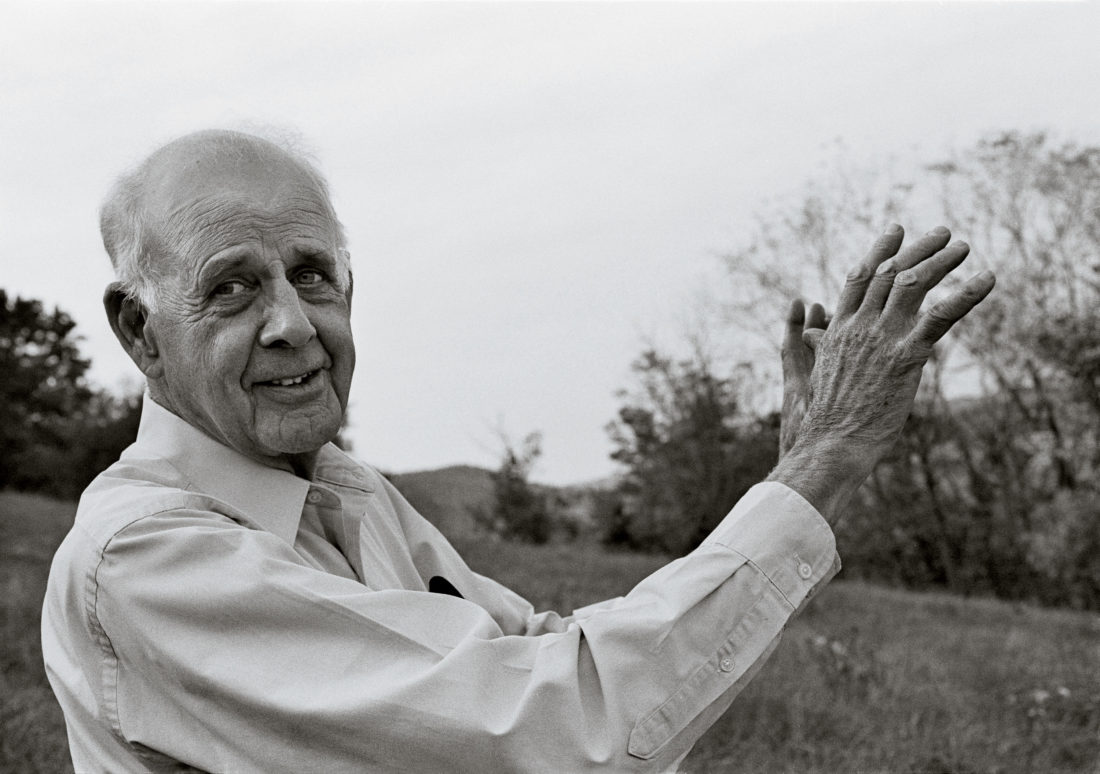
Photo: Guy Mendes
Wendell Berry in Henry County, Kentucky.
“I believe that Henry County ought to be used as a classroom to instruct young people who want to take up a life of farming,” Mary Berry says.
As part of the program, students will use draft animals to learn more about sustainable farm practices. “There’s a way that working with draft horses teaches farming like nothing else can,” Berry explains. Her father said the same in his essay “Taking Draft Animals Seriously.” Participants will also learn about the economics of agriculture, including studying the history of the Burley Tobacco Growers Cooperative Association, a one-hundred-year-old organization that John Berry Sr., Mary Berry’s grandfather, helped found to provide stability for small farmers in the region. The Berry Center is trying to recreate that approach with its Our Home Place Meat initiative, a cooperative for local livestock farmers through which students will have the opportunity to gain real-world experience.
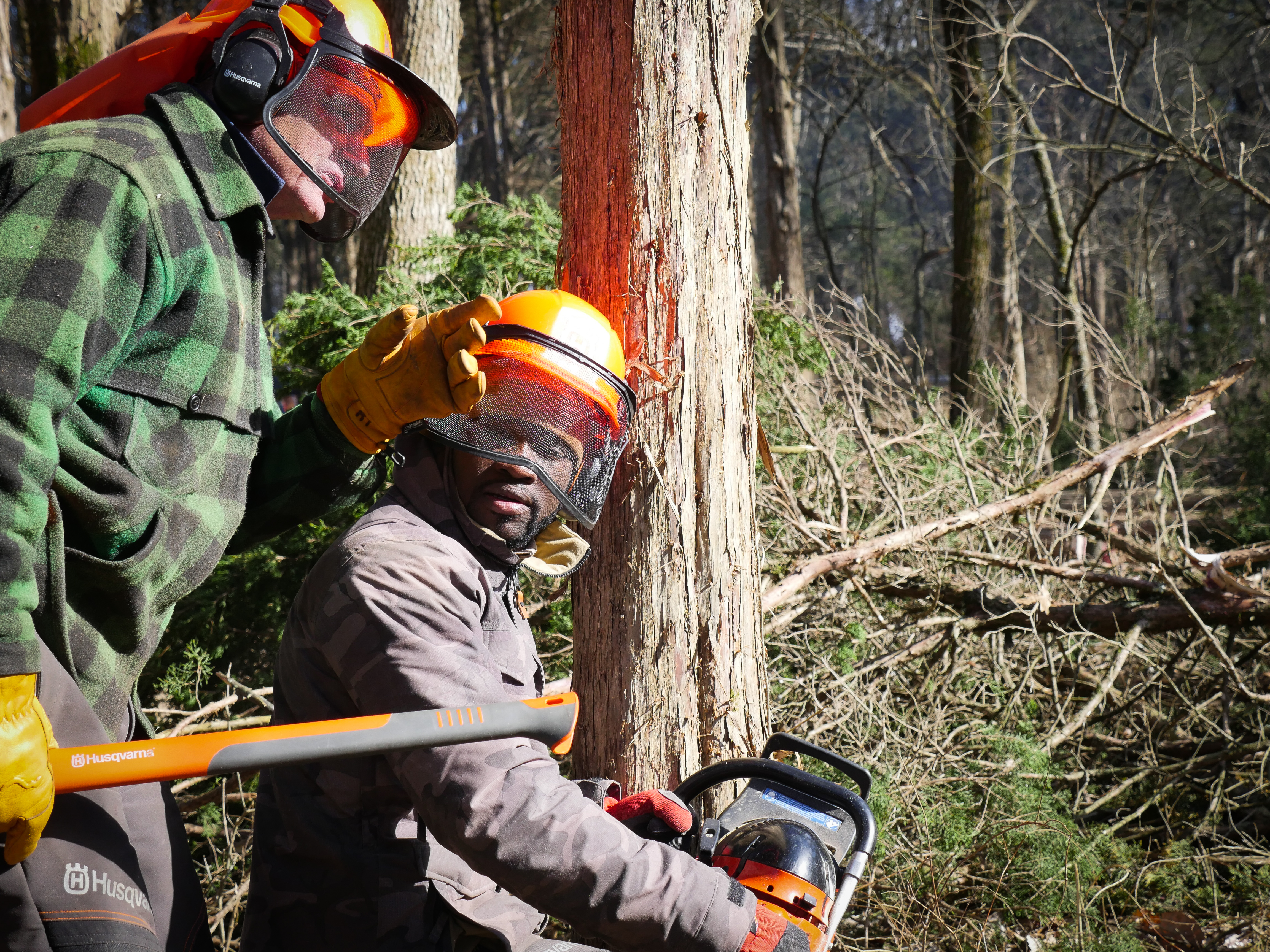
Photo: Ben Aguilar
Professor Rick Thomas and student Jonas Kambire talk through felling an eastern red cedar.
The program will remain small, with a total of twelve students admitted, and there is no tuition for those who enroll. “A tuition-free education minimizes graduates’ college debt, which can be a major obstacle for folks starting their farming operations or returning to family farms,” says Dr. Leah Bayens, the Dean of the Wendell Berry Farming Program. “We also have plans for an endowment that would provide low- or no-interest loans for alumni farm projects.” And though all of the classroom instruction and fieldwork will happen in Kentucky, Berry and administrators say the program is designed to be applicable no matter where graduates put its lessons into practice.
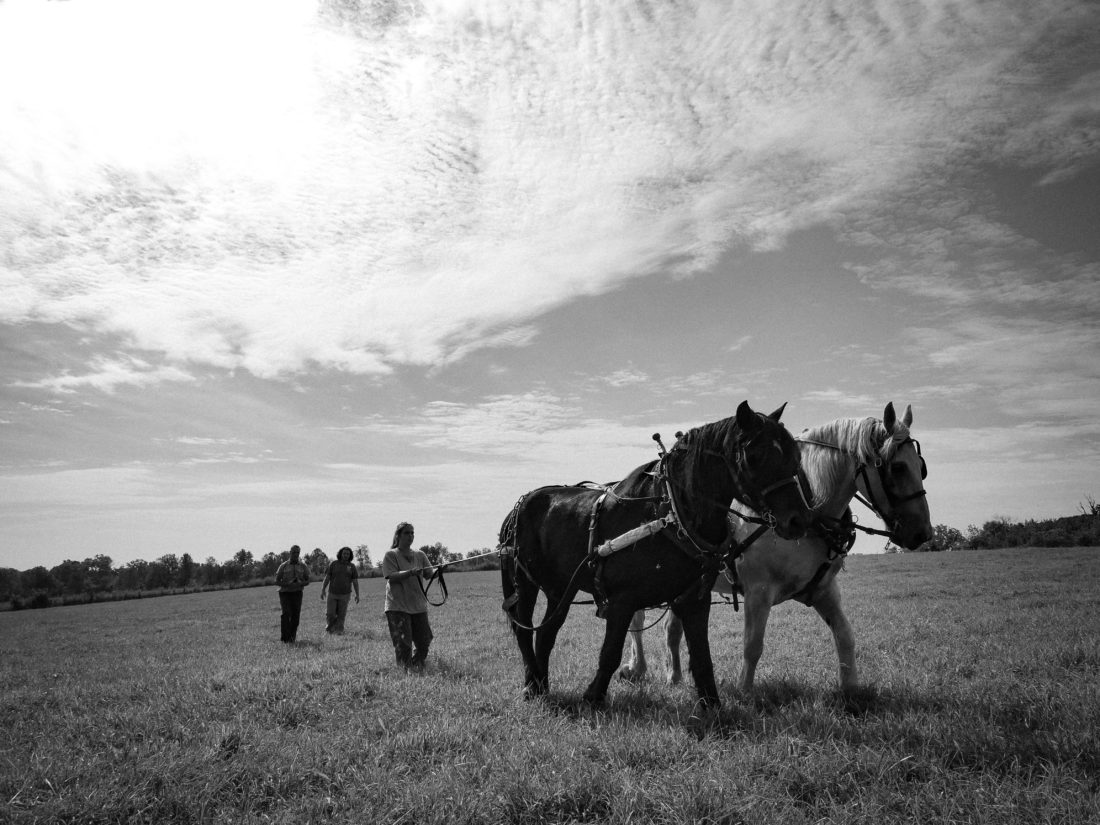
Photo: Ben Aguilar
Student Grace Desrochers works Felix and Jed.
“We call our program a ‘major in homecoming,’” Bayens says. “It is a phrase we adopted from our friend Wes Jackson at the Land Institute to describe an education that helps people learn how to return to their home places or to go somewhere else and dig in. Our graduates will be people ready to dig in: skilled farmers, considerate neighbors, and community members committed to making it possible for a diverse group of people to join this work. That’s exactly what rural places need and deserve.”
The Wendell Berry Farming Program will begin reviewing applications on April 1, 2019 for enrollment in the fall. Find out more about the program here.


